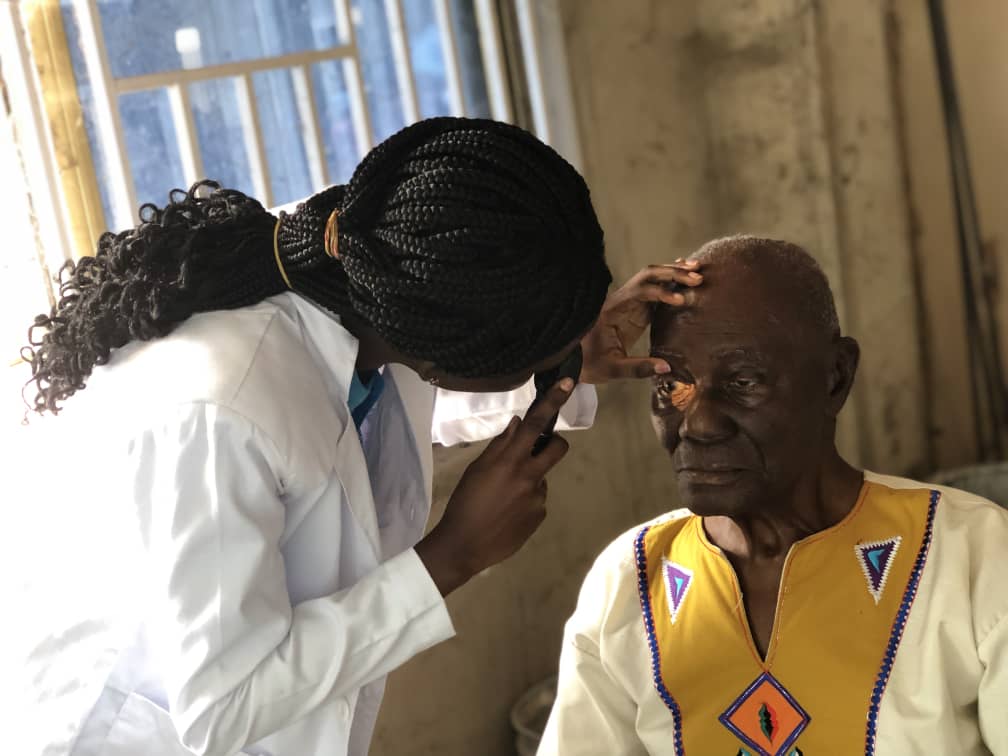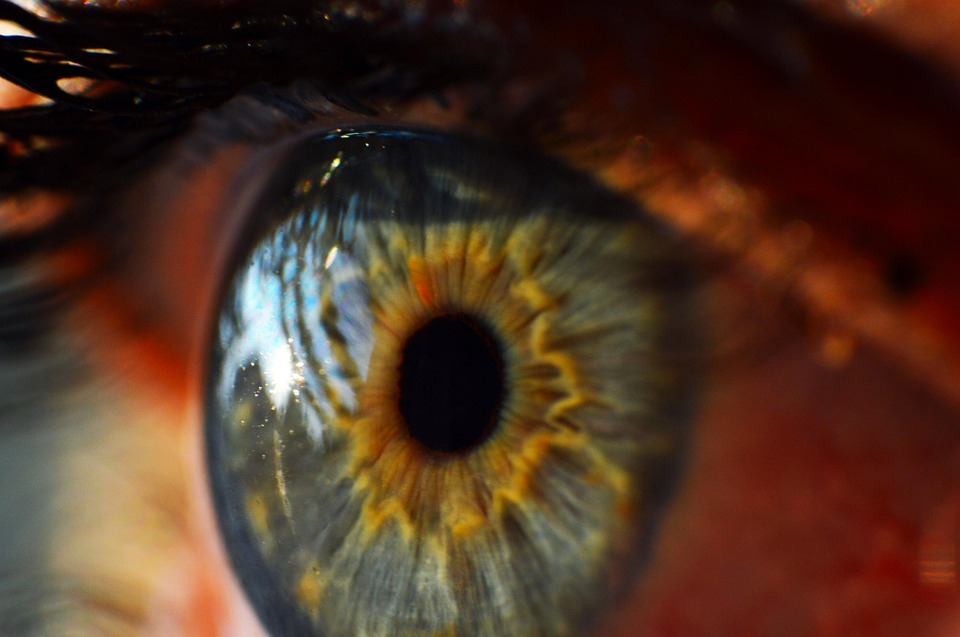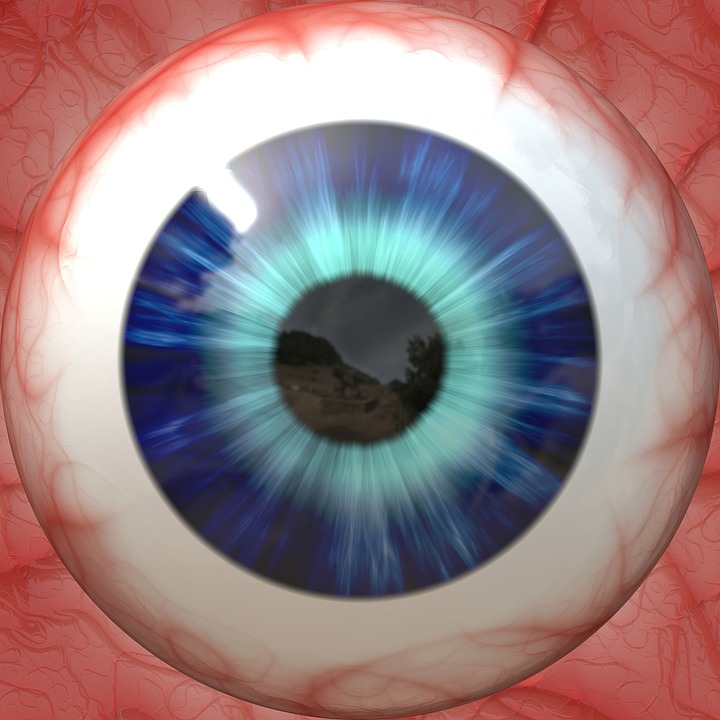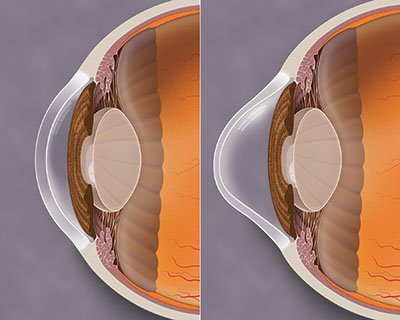Hello,
Greetings to all and sundry, it has been a long year full of unprecedented occurrences irrespective i hope we all get to survive through all this and i hope you and your families are staying safe.
Today i want to touch on one of the most important aspects of the ocular constituent, the cornea, some common conditions presented often to the hospital and how we can stay safe.
Introduction
The Corneal is by far one of the most sensitive structures within the body, it has lots of nerve endings which makes it extremely painful when something goes wrong.
The corneal is transparent and so for easy identification we mostly referred to the black part of the eye we see which is in actual terms would be referring to the pupil the hole in the eye, however for easier reference and i understanding i would be sticking to this description.
The Anatomy
The Cornea is a thin layer of about 0.5mm. It has 5 established layers although some recent publications looked at another layer known as Dua's layer, since less is known as about it we won't be considering it. The corneal forms the major refractive component of the eye and has a refractive index of about 1.376.
Interestingly it has no blood vessels as it would disrupt its clarity and affect its refractive properties. It does receive nourishment from surrounding vessels and oxygen from the atmosphere and tears. Conditions of the corneal are critical and demands immediate attention as it can easily lead to loss of sight.
Keratitis
As the name implies, Keratitis simply means inflammation of the cornea and in most cases keratitis is cause by some form of infection. The causative organism of the infection would give the name of the condition, for instance and infection by fungus results in fungi keratitis whereas one cause by acanthamoeba is called acanthamoeba keratitis.
Although each infection has exclusive signs and symptoms some general symptoms reported by patient include extreme pain, extreme photophobia and redness of the eye. Confirmation of the condition is with the help of staining the eye and the use of the slit-lamp bio-microscopy which your optometrist would do.
Some common causes of keratitis include contact lens wear, swimming in pools and other riverbodies (acanthamoeba keratitis) and corneal abrasions caused by infected objects.
Treatment of Keratitis varies per the specifics of the condition and would most likely involved the use of antibiotic eye drops and gel such as tetracycline, acyclovir, ciprofloxacin etc. In some cases such as disciform keratitis steroids may be administered however on most occasions steroid us is contra-indicated for cornea conditions as it disrupt the healing process lead to scar formation and severe visual impairment.
Keratoconus
Keratoconus is a condition characterized by bulging out of the cornea. It disrupts the curvature of the cornea and introduces astigmatism to affect vision. Although the exact cause is not certain it is attributed to decrease in antioxidants in the eye, heredity, trauma and imbalance in corneal deturgescence.
When left unattended to the condition could lead to scarring of the cornea when the layers and fibers are stretched beyond their limit. This also causes severe visual impairment.
Keratoconus development is gradual and may easily be missed by a patient until a point is reached where vision starts to be affected hence the recommendation regular eye care. Symptoms include blurry vision, photophobia and frequent change in spectacle prescription
There are diverse treatment options available and your optometrist would be the person to go through it with you to find which would suit you best. The lot of the treatment option does involved the use of contact lenses though.

Conclusion
Whiles this is not an exhaustive look at all conditions it is important that one understands the severity with which corneal cases present hence should you experience any of the symptoms as described or notice any anomaly with your vision or eye do not hesitate to report to your nearest eye care unit.
Thanks for reading and have a great day, Special thanks to my mentors and supporters @mcsamm, @tj4real, @armandosodano, @delilhavores, @gentleshaid, @agmoore. For further reading;



Thanks for your contribution to the STEMsocial community. Feel free to join us on discord to get to know the rest of us!
Please consider supporting our funding proposal, approving our witness (@stem.witness) or delegating to the @stemsocial account (for some ROI).
Please consider using the STEMsocial app app and including @stemsocial as a beneficiary to get a stronger support.
Greetings @nattybongo, thank you for sharing this type of useful clinical content, I would say that the cornea is not only the most sensitive structure, but the most important in the body, for its functional connection with the body's motor activity, I comment that at the age of 6 years I suffered a severe corneal inflammation in my right eye, product of an infection that caused me contact with an ant, this situation affected me for life because my cornea deteriorated.
I am very sorry to hear about that, i hope you are much better now though. How is your vision in the affected eye? Do you go for regular checkups?
My parents used to take me when I was a child, then in my adolescence I chose not to go anymore, my vision is normal, I think my left eye has a higher level of vision than normal, I have no problems reading, as well as seeing at long distance.
That is great, do take good care and try and visit the clinic at twice a year for regular check up
Hello @nattybongo,
I feel as though I've taken a course in eye anatomy. I love the way you take each part of the eye and give a thorough overview. You do it so clearly, in such plain language. I don't know if you teach, but this is the technique of a good teacher: explain a complicated subject in simple terms.
Thank you for this 'lesson', which I very much enjoyed. It also has motivated me to go for an eye-exam--as soon as COVID no longer hovers over my community.
Be well.
Regards,
AG
Hello @agmoore,
Thank you very much for your kind words, i am actually a final year student and i would be graduating by May 2021 however education is one of my passion because of which i am looking forward to a PhD in Neuroscience and or Ocular Pharmacology after my professional degree so i can come back to the university and share my knowledge and understanding.
I am glad i got atleast one person to want to have an eye exams and thank you for reading always.
Stay Safe,
Kind Regards,
Nathaniel.
Hi Nathaniel,
What a wonderful platform that I get to meet such interesting people :) I wish you good luck in your studies. I've no doubt, judging from your clear and logical presentation, that you will be successful.
Regards,
AG
Thank you for your words of encouragement